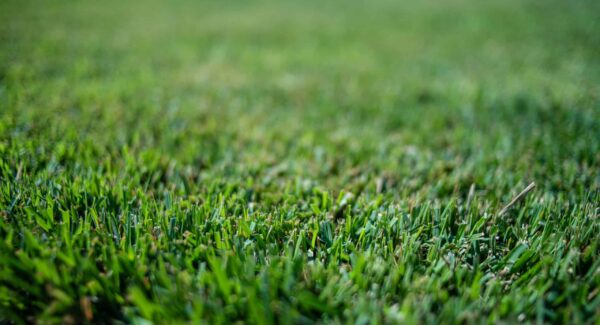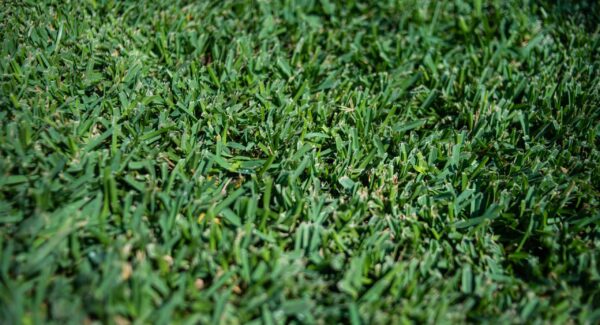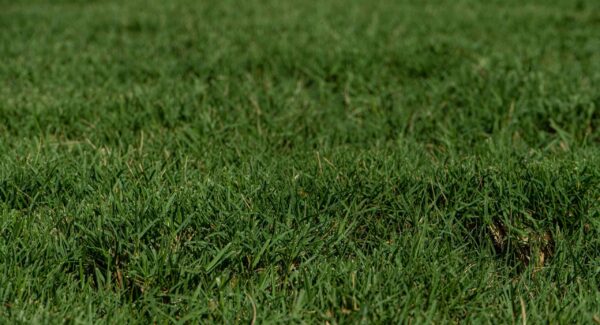Will Pool Water Kill Grass?
It’s becoming increasingly popular for families to have grass areas closer to their pool edges. This setup is often more visually appealing and comfortable than stepping onto hot concrete after swimming.
However, families who enjoy their pools during the hot months might worry about the impact of pool water on their lawns. Will pool water harm your grass?
Pool water can damage your yard in large quantities, such as overflow or draining. But you don’t have to choose between a green lawn and a swimming pool. Here, we examine whether and to what extent pool water can affect grass and discuss ways to protect against potential damage.
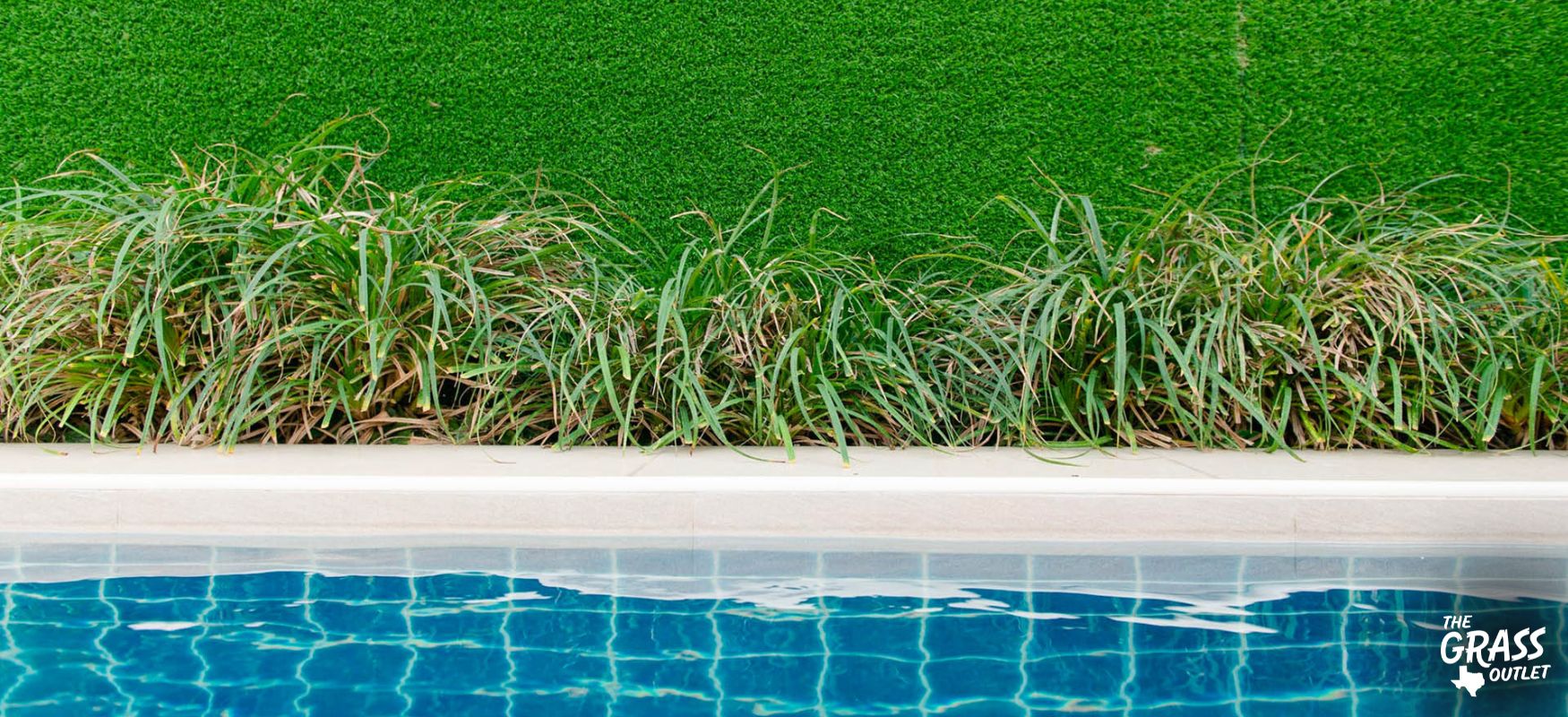
Understanding Pool Water Composition
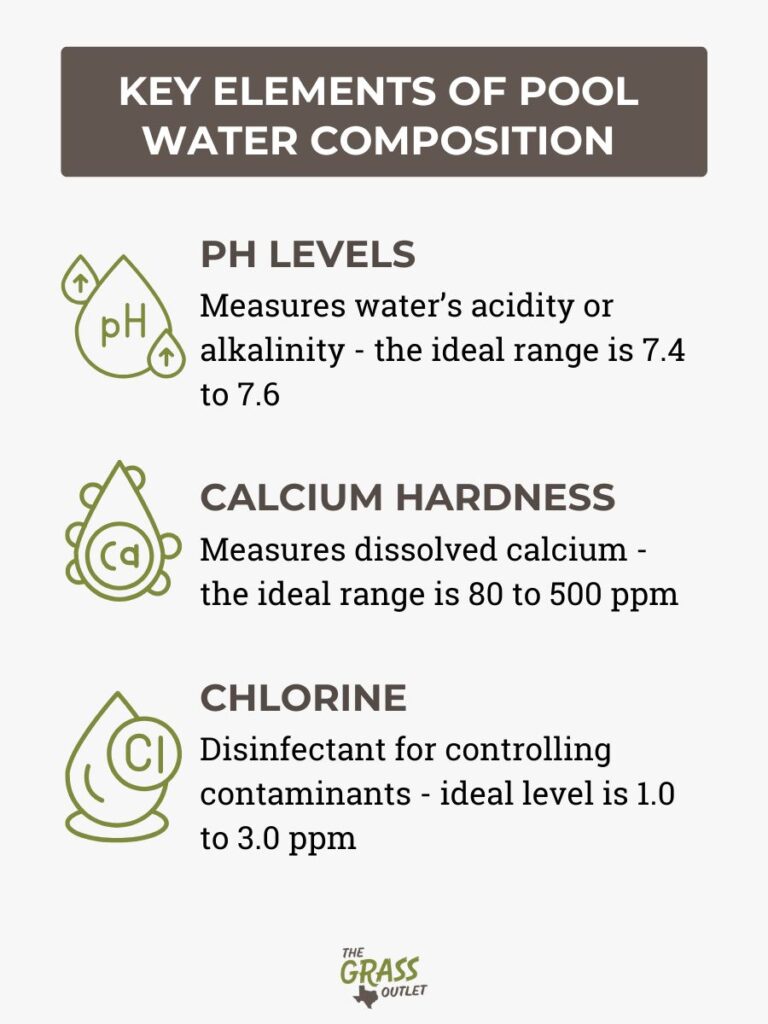
Saltwater, on the other hand, affects lawn grass and salt-sensitive plants differently.
There are three main elements to maintaining balanced pool water:
pH Levels
It measures how acidic or alkaline your water is. Low pH can irritate your eyes and cause equipment corrosion, while water with a high pH can cause scaling and calcium buildup on the pool and equipment.
The ideal pH for pool water is between 7.4 and 7.6.
Calcium Hardness
The ideal range for dissolved calcium is 80 to 500 parts per million (ppm). Too much calcium can make the water unstable, leading to cloudiness and calcification. Too little calcium can damage the pool surface metal fittings and cause staining.
Chlorine
Chlorine is a common disinfectant that controls bacteria, algae, and other contaminants in pool water. The ideal chlorine level is 1.0 to 3.0 parts per million (ppm). Excessive chlorine levels are toxic to plants, including grass.
And what about salt water?
Salt and plants are incompatible, and excess salt can inhibit their ability to absorb essential minerals, nutrients, and water, as these plants already contain small amounts of salt.
Freshwater generally contains between 0.5 and 1.0 grams of salt per liter, while seawater contains about 35 grams per liter. It is recommended to rinse the lawn with fresh water after pool water splashes to wash away deposited salt.
How Pool Water Affects Grass
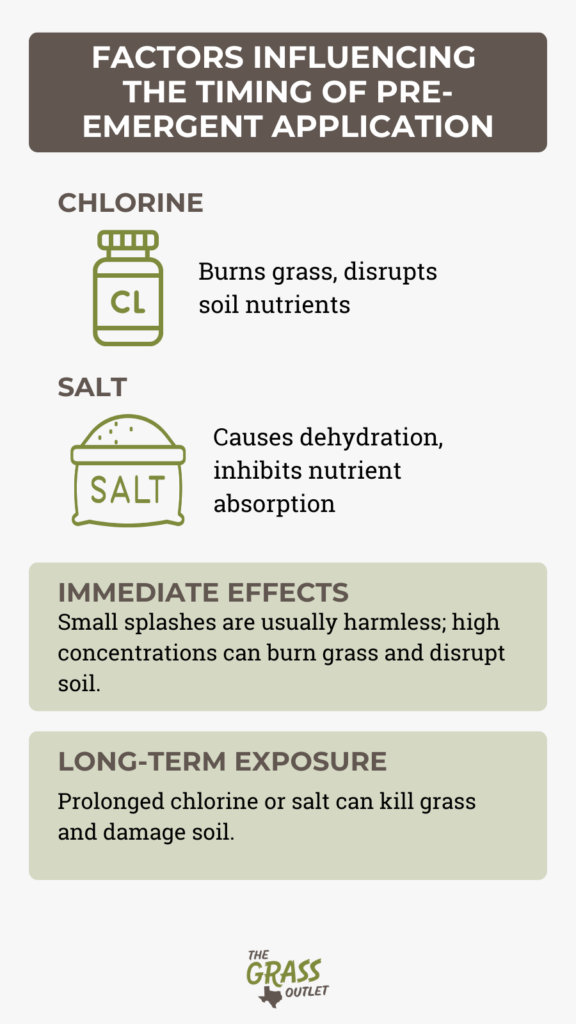
Chlorine’s Effects on Grass
Draining heavily chlorinated pool water directly onto your lawn can cause the grass to burn, causing it to turn yellow or brown, especially in hot, sunny weather. This can lead to dead or damaged patches that are difficult to repair.
Then, there is a soil health impact. High chlorine concentrations in the soil can disrupt the balance of nutrients and beneficial bacteria that grass needs to thrive.
Salt’s Effects on Grass
While saltwater pools are generally less harmful to landscapes, they can still cause problems such as grass dehydration. Salt can draw water out of the grass’s roots, causing dehydration and potential death.
High salt levels in the soil can make it difficult for grass to absorb essential nutrients, leading to discoloration, slow growth, and patchiness.
Considering the effects of pool water on grass, we speak about both immediate and long-term exposure.
Immediate Effects
Small amounts of chlorine splashes and drips are unlikely to harm your lawn, as the diluted chlorine is not strong enough to cause significant damage. Most grass types can tolerate small amounts of diluted chemical water.
As mentioned, pool water splashing onto grass can cause burning or yellowing of grass blades. Still, high concentrations can denature plant tissues and disrupt the soil’s pH balance, hindering grass growth.
Long-term Exposure
Prolonged exposure to high chlorine levels can kill grass. Pools typically maintain chlorine levels between 2 to 4 parts per million (ppm), but the general recommendation is around one ppm for safer conditions for your family and your lawn.
Prolonged exposure to salt can cause significant damage to plants and grass. Excessive salt in the soil can block the proper entry of water and nutrients, leading to soil compaction and restricting the grass’s ability to thrive. Although lower in chemicals, saltwater pools can still increase soil salinity, making it a challenging environment for plant growth.
Factors Influencing Damage
Some factors make your lawn more vulnerable to pool water exposure.
Type of Grass
A lush green lawn around your pool can transform your backyard into a dreamy oasis, but selecting the correct type of grass is crucial for optimal pool landscaping. However, this practice can be challenging if you don’t choose a grass variety that withstands heavy foot traffic and splashing water.
Bermuda grass is a drought—and salt-tolerant variety, which makes it an excellent choice for pool surroundings.
Another good option is St. Augustine Grass, known for its lush green appearance and resistance to heat and humidity.
However, Bermuda and St. Augustine grasses need frequent mowing and can accumulate dew in the mornings, posing a slipping hazard for pool users.
Zoysia has low ground-covering capabilities, so it requires minimal mowing. It thrives in sunlight and needs little watering, reducing maintenance costs. Zoysiagrass also has a high tolerance for salt-water spray and soil salinity.
Impact of Pool Water pH on Grass
The pH level of pool water significantly affects grass and other vegetation.
Acidic Pool Water (pH below 7.0) can harm grass by causing soil to become more acidic, leading to nutrient deficiencies and poor growth. Essential nutrients like nitrogen, phosphorus, and potassium become less available, resulting in yellowing and weak grass. It can also alter microbial activity in the soil, reducing beneficial organisms that decompose organic matter and release nutrients.
Neutral pH Pool Water (pH around 7.0) is generally safe for grass, allowing it to access nutrients effectively without significantly altering soil pH.
Alkaline Pool Water (pH above 7.0) can harm grass, making specific nutrients like iron, manganese, and phosphorus less available. It can lead to nutrient deficiencies, chlorosis, stunted growth, and poor overall health. It can also increase soil pH over time, affecting its structure and microbial activity and reducing nutrient uptake efficiency.
Frequency of Exposure
As we noted before, the frequency of grass exposure to pool water dictates the extent of its damage, including higher disease risk and the following consequences:
- Chemical Build-Up: Regular exposure to pool chemicals can lead to soil toxicity, burning the grass and causing it to turn yellow or brown and die.
- pH Level Alteration: Consistent exposure to chlorinated water can alter soil pH, hindering grass’s ability to absorb essential nutrients.
- Salinity Increase: Pools, especially saltwater systems, can increase soil salinity with regular overflow, causing dehydration and salt stress in the grass, leading to brown, withered patches.
- Pests and Health Issues: Constant moisture fosters fungal diseases and lawn pests exacerbated by weakened grass from chemical exposure.
In contrast, occasional contact allows for natural recovery, maintaining grass health and appearance. The natural dilution effect, combined with rainfall and other watering, can mitigate the negative impacts of chlorine and other pool chemicals.
Protective Measures and Solutions
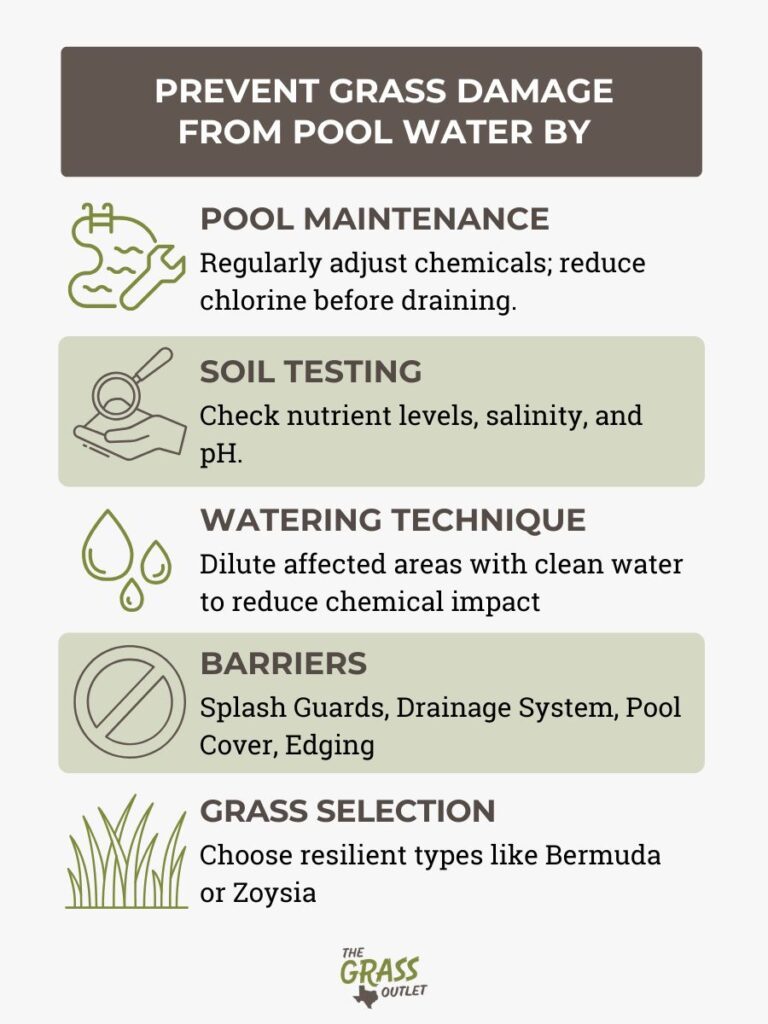
Proper Pool Maintenance: A well-maintained pool is less likely to harm your grass. Regularly test your pool’s chemical levels and make adjustments as needed. Maintaining ideal chlorine levels reduces the risk of chemical burns on your lawn when water splashes out.
Before draining your pool, ensure the water is chlorine-neutral, has a neutral pH, and does not contain high traces of other chemicals and salts. If you want to empty your pool for cleaning or repairs, reduce the chlorine concentration to approximately 0.1 parts per million before draining it into the surrounding lawn and environment.
This will minimize the potential impact on your lawn when the water is released.
Regularly Test Your Soil: Utilize scientific soil tests to test your soil’s nutrient levels, salinity, and pH.
Watering Dilution Technique: To reduce chemical concentration in the soil, dilute the area with clean water immediately after pool water contact. If you notice damage from chlorine, thoroughly water the affected area to dilute the remaining chemicals and flush out the salt. Do the same if you manually add chlorine to your pool and accidentally spill some on the lawn.
This measure helps minimize the impact of pool water and chemicals on your grass. In some cases, repeated irrigation over several weeks might be necessary to restore the soil’s natural balance and encourage healthy root growth, which is crucial for your lawn’s recovery.
Barrier Creation: Using physical barriers and strategically placing pools away from grassy areas are effective methods to protect grass from the harmful effects of pool water. These are some of the approaches:
- Splash Guards can be made from materials like plastic, metal, or glass and should be high enough to contain most of the splashing.
- Drainage System: Integrate a system to direct water away from grassy areas. This ensures that any water hitting the splash guards is diverted to designated drainage areas or toward non-grassy surfaces.
- Pool Cover: Cover the pool when not used to prevent water from splashing out due to wind or other factors. This also helps reduce evaporation and maintain water quality.
- Decorative Edging: Use bricks or stones to create a physical barrier between the pool and grassy areas. It prevents water from reaching the grass and enhances the landscaping aesthetic. Create a paved or tiled area around the pool to catch splashes and overflows. Materials like concrete, stone, or pavers can create a non-slip, attractive surface that directs water away from grass.
Grass Selection: Plant more resilient grass varieties that can better withstand chemical exposure. As we demonstrate, some turfgrasses, such as Bermuda grass, Zoysia, or St. Augustine varieties, can handle high activity levels, recover from damage, and regrow quickly, making them ideal for poolside areas.
Alternative Water Disposal Methods
By employing methods to redirect pool overflow and implementing safe drainage solutions, you can protect grassy areas and other parts of your landscape from the potentially harmful effects of excess water.
Redirecting Pool Overflow: Effectively managing pool overflow is essential for maintaining the health of your surrounding landscape, mainly grassy areas. This can be achieved through gutter systems, French drains, or rain gardens. These methods capture and redirect excess water away from vulnerable areas, preventing damage and ensuring proper water absorption.
Safe Drainage Solutions: When draining your pool for regular maintenance, avoid draining it directly onto your yard or lawn. Instead, connect the drainage outlet to a nearby sanitary sewer line or appropriate drainage system. It prevents excess chlorinated water from flooding your lawn and causing damage.
Final Thoughts
Pools provide refreshing relief during hot summer days for you and your family. However, concerns often arise about the potential impact of pool water on grass: will pool water harm your lawn?
Proper pool maintenance is essential to avoid damage. With careful handling and preventive measures, pool water need not significantly threaten lawn health. By understanding the contents of pool water and how to manage it, your pool and lawn can coexist harmoniously.
For detailed lawn care and pool maintenance information, visit thegrassoutlet.com or contact us for specific advice and products.
